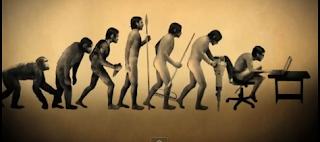Individualism, at first, saps the virtues of public life; but in the long run it attacks and destroys all others and is at length absorbed in downright selfishness. With the nuclear family concept gaining ground, the traditional hierarchy within the family has broken down. Elders feel like intruders in the home of their children, people are silently witnessing violence to family life, its health; it is tearing apart the fabric of family as an institution. These distortions may be construed to be causes and consequences of the generation gap that is becoming more and more pointed and pronounced with each passing day.
Teenagers and the youth are increasingly seen to be beyond control and a world unto themselves. More and more of elders, their numbers going up rapidly are finding themselves lonely and unable to adjust to the ways of a fast-changing, increasingly busy and self-centred world.
The phenomenon ‘generation gap’ apparently delineates two sets of different persons having distinct physical and mental make-up, but in reality it is much more than meets the eye. Essentially, it is a difference in attitude or lack of understanding between young people and older people. It is reflected in the choice of dresses, music, opinions and other behaviour patterns.
No society, group or family set-up is free from the tensions and traumas born out of the generation-gap, where on one end of the spectrum stands the balding or greying head of the family and on the other the defiant and disobedient youth ready to break all barriers so that he or she can assert his/her point of view to the extent of being a ‘rebel’. Like the two banks of a river or the cultural contours of the East and the West, the twain fails to meet even halfway.
The problem, though touching and taunting may not defy a solution if both the youth and the age sit together with open minds and come to terms with realities. In a situation where the youth is active and aspiring, the onus lies on it to show reasonable restraint and respect to the elders who claim to have seen better days and behaved differently with their seniors or blood relations.
The older persons, on their part, should give up living in a world of illusions and self-delusion and address themselves to the changed milieu, where their role is passive. No two generations are alike in their perceptions and preferences. If the younger one is aggressive and assertive, the elder one too is not very polite and pliant. Blaming the new generation for everything that has home wrong in the society is like showing a red rag to the bull. The generation gap has been the rigorous reality of life since ages.
In the dying years of the present century, the hiatus between the two seems to have become more pronounced and painful because the younger generation is moved and motivated more by career considerations or calculation than by care, concern and compassion for their elders. In the absence of ‘a cause’ for which they and their elders may stand and share one platform, crass commercial consciousness has widened the chasm between the two, leaving behind a trail of bitterness, complaints and grudges against each other.
Since each new generation becomes out of tune and touch with the upcoming one, it is in the fitness of things that the youth of today exhibit understanding and adjustment with the older generation now, so that it does not suffer the burden of ‘guilt conscience’ in its greying or balding period of life. The adults also need to introspect and think about the differences they had with their parents.











